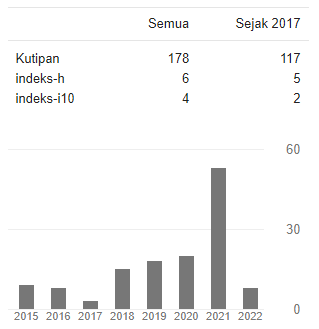THE IMPACTS OF THE DEVELOPMENT OF ELECTRONIC PAYMENT SYSTEM ON SOME ASPECTS OF MONETARY POLICY
Abstract
Recently, a new payment instrument has emerged : the multipurpose card or ?electronic purse?. It is a plastic card which contains real purchasing power, for which the customer has paid in advance. Although development in the field of electronic payment systems were used in a great number of retail outlets, they would become a direct competitor not only to cashless payment instruments already in existence, but also to notes and coins issued by central banks and national authorities. Some development of electronic purses are : smart cards and stored value cards. One other forms of electronic payment system is ?home banking?, which based on personal computers and high capacity telecommunications, turn the home into a virtual bank branch. The main form of home banking is phone banking. This service allows a limited range of transactions to be carried out from home (or from any location with a suitable telephone). The last half session of the paper, explores some of the monetary policy issues that might be raised by electronic money : reserve requirements, definitions of money, seignorage, and the appropriate limitations on the types of institutions that could issue electronic value. Furthermore, there are some consequences to central banks concerning the use of electronic purse. Electronic payment system raise at least two kinds of problem : one relating to the soundness of the issuer, and the other relating to the soundness of the instrument. For monetary policy purposes, central banks need to control the amount of money which is available to non-bank economic accents as a means of payment. There are 3 implications for the conduct of monetary policy on using prepaid cards. First, the new form of money contained in multi-purpose prepaid cards will have to be included in narrow money aggregates since it will be close to a perfect substitute for notes and coins and for sight deposits. Second, the extent to which the velocity if prepaid card money will be identical to forms of money which already exist will have to be assed. Third, the decrease in notes and coins is likely to contract the size of central banks? balance sheets.


_mini-1.jpg)






1.jpg)









